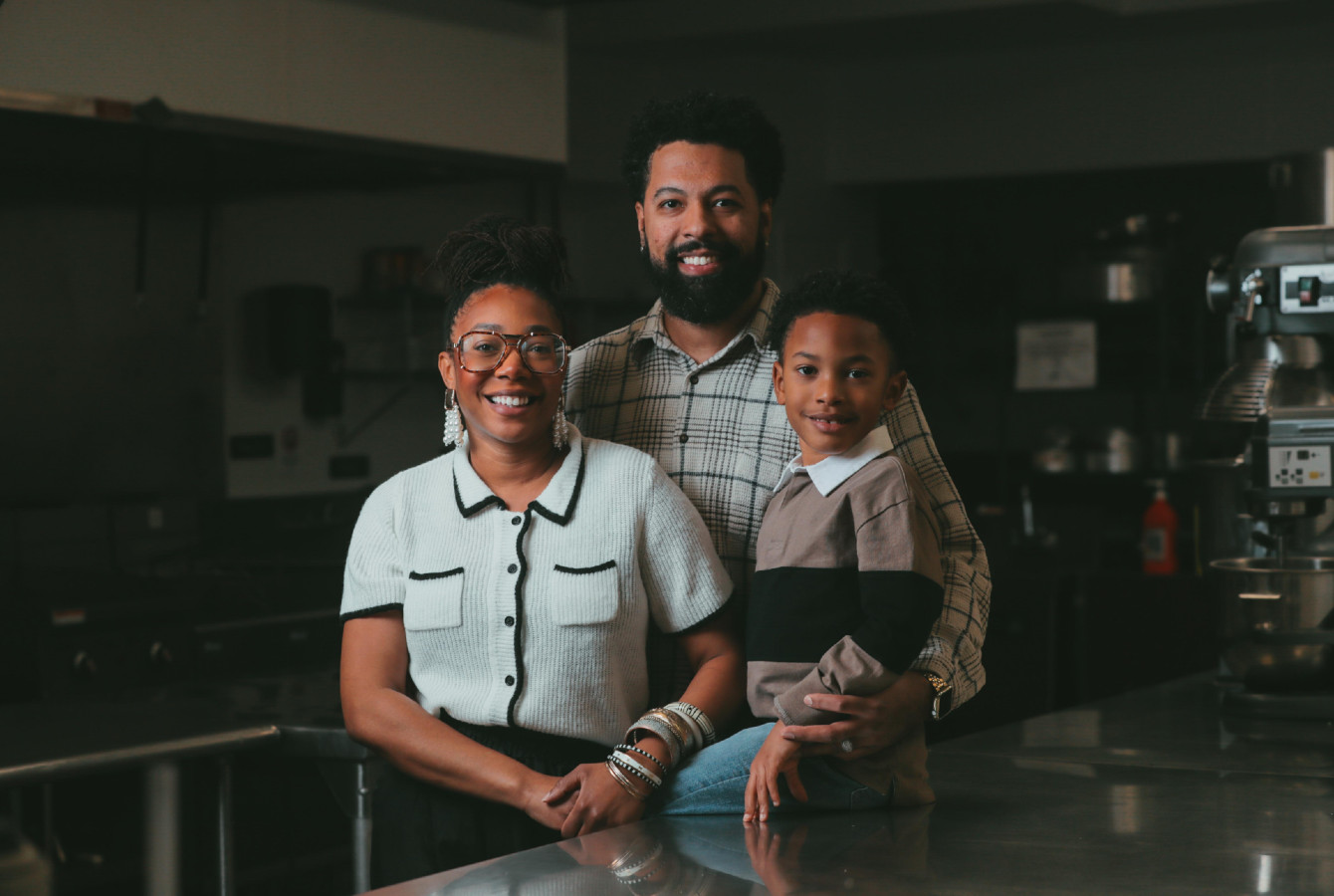Cooking up Business in the Church Kitchen
Cooking up Business in the Church Kitchen
Edited excerpt from Cooking up new businesses by using church space creatively by Holly Quinn for Faith & Leadership.
The Wilmington Alliance had a plan. In 2019, the economic revitalization nonprofit in Wilmington, Delaware would launch a commercial kitchen incubator, helping food entrepreneurs build businesses while utilizing vacant spaces in the city.
But converting vacant warehouse spaces into commercial kitchens was more complicated than anticipated. What the project really needed were existing commercial kitchens that were rarely if ever used. Kitchens that could be renovated, rather than built from nothing.
Enter Grace United Methodist Church. Established in 1866, the active church with a magnificent chapel and stained-glass windows is known for its community outreach. At one time, the large kitchen in the basement was used often. By 2019, it was not.
The idea of using a church kitchen seemed impracticable at first. How would a church share space with entrepreneurs from the community? What were the risks? Was it sustainable?
The Rev. Chelsea Spyres was working part time for Grace UMC and Riverfront Ministries in January 2020 when she heard about the project.
“At the time, the Riverfront board was starting to ask, ‘How do we invest more deeply physically in the city?’” she said.
“For Riverfront, the communion table is this reminder of God’s presence with us, of belonging. But also, we talk a lot about how the communion table calls us to create other spaces of belonging and importance. And so when Grace started thinking about this shared commercial kitchen, Riverfront said, ‘this might be the right thing for us to invest in.’”
Today, Spyres is the pastor and executive director of Riverfront Ministries, the operating partner of the Wilmington Kitchen Collective leading the work alongside Wilmington Alliance and the church partners. The Collective currently serves 16 entrepreneurs in two renovated church kitchens — the original space in the basement of Grace UMC and a second kitchen at First & Central Presbyterian Church.
Getting a business in the food industry off the ground is challenging. Food trucks in Delaware, for example, are required to have access to a commercial kitchen, an often insurmountable hurdle for entrepreneurs with limited resources. Those facing the biggest barriers tend to be people of color and women, and the Kitchen Collective’s cohort of entrepreneurs reflects that.
Fulfilling a need
Joanne Graves and her husband wanted to expand their honey business, GravesYard Apiary, by adding herbs to create electuaries, sweet medicinal pastes that are mixed with hot water or milk.
“You cannot do that legally unless you’re in a commercial kitchen,” Graves said.
The same is true for the Rhythm + Heat spice blends made by husband-and-wife team Lance and Adrienne Williams. Inspired by flavors from her St. Louis background and West Indian heritage, Adrienne adapted her cooking to be flavorful yet low in sodium.
The Kitchen Collective not only gives them access to a commercial kitchen space to make the products legally; it also helps guide them through the complexities of business ownership. Currently, Rhythm + Heat spices are sold through their e-store and in Wilmington.
Startup incubation as ministry
Laura Viau, the pastor at First & Central Presbyterian, immediately saw the Kitchen Collective as an extension of her ministry. Still, running a kitchen incubator inside a church has its challenges. Saturday mornings at First & Central are especially busy in the winter, between entrepreneur activity and the church’s ministry of opening its doors to people who need a place to get warm.
“This has given us an opportunity as leaders in the church to think, ‘How do we find a way to support these [entrepreneurs] that we’ve made a commitment to, and take care of our neighbors who are also in need of support?” Viau said.
Balancing kindness with business has had an impact on the Kitchen Collective’s entrepreneurs, who have helped build a close-knit, collaborative community. A far cry from the hypercompetitive style of entrepreneurship seen on TV, the Kitchen Collective stands by the idea that community and caring is good for entrepreneurs.
“Early on, it became the foundation for us, of caring about the whole person and their business goals,” Spyres said. “We had so many members who said, like, ‘Why do you care? Why are you as a pastor spending all your time building this shared kitchen? I’ve never had a church care about me in this way.’”
This story is part of Lake Institute’s story collection, the Faithful Generosity Story Shelf, which highlights congregations and other religious organizations who have sought to use their assets and resources in creative—and sometimes surprising—ways as an expression of faithful giving.
Each entry in our Story Shelf is short enough to be read and discussed during a committee meeting or other group gathering. Our hope is that these accessible vignettes will spark new questions, conversation, and imagination among clergy and laity about what might be possible with the funds, buildings, land, and other resources in their care. If you know a story that should be included in the Story Shelf, suggest it here.
Subscribe
Insights, a bi-weekly e-newsletter, is a resource for the religious community and fundraisers of faith-based organizations that provides:
- Reflections on important developments in the field of faith and giving
- Recommended books, studies and articles
- Upcoming Lake Institute events

